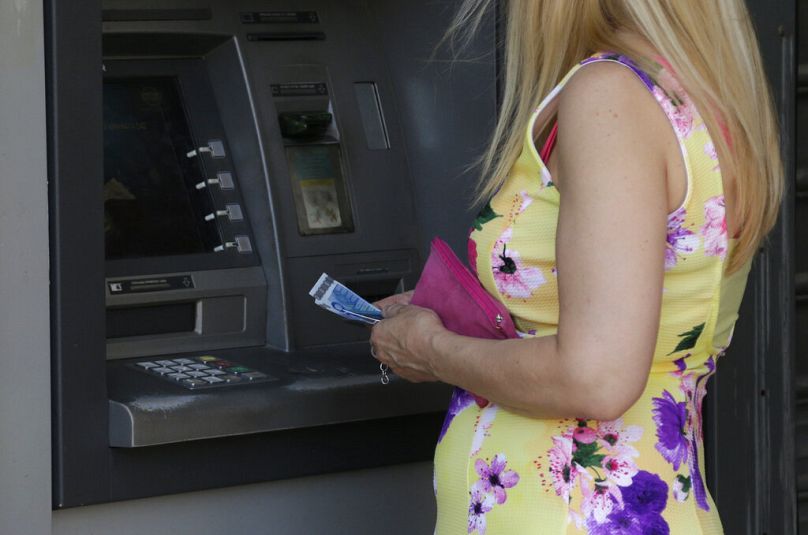Web3 digital technology is set to transform how societies interact with money and payments, effectively unbundling banking and payments. This shift can make society less dependent on banks, Jón Egilsson writes.
A more bankless society is on the horizon, where self-custody and innovative technologies grant individuals greater control and efficiency.
 ADVERTISEMENT
ADVERTISEMENT
 ADVERTISEMENT
ADVERTISEMENT
Gnosis Pay's VISA debit cards, linked to a self-custodial wallet, not to a bank deposit, is the latest case in point, showcasing a move toward more independence from traditional banks and bank deposits.
The banking industry, led by giants like JP Morgan, is at a crossroads, facing the dawn of the web3 era. While JP Morgan's recent exploration of deposit tokens represents a nod to the future, it predominantly aims to cement the status quo, preserving the hegemony of major banking institutions.
This approach overlooks a critical historical lesson: our quest for financial security gave rise to bank deposits in an age when alternative options for safeguarding digital cash were nonexistent.
After all, before the advent of tokens on blockchains and the solution to the double-spending problem, we couldn't simply store our digital cash on our hard drives.
Today, we have the capability to store our regular digital cash on blockchains. Now we have a choice.
SVB's collapse exposed the fragility of traditional banks
The traditional banking model, characterized by its leverage and reliance on depositor funds, was our only option for “safeguarding” our digital cash.
However, the inherent risks of this system — exemplified by the inherent risk of funding long-term obligations with short-term bank deposits and the minimal returns they offer — have become increasingly apparent.
The collapse of SVB has underscored the fragility of this foundation, challenging us to reassess our reliance on traditional banks for financial stability.
Enter today’s era of EU’s licensed e-money token issuers — licensed entities that operate outside the conventional fractional reserve banking model, embodying the progressive shift toward secure, self-sovereign management of personal funds.
This development marks a departure from the high-risk environment of the current bank deposit system, offering individuals a safer, more empowering way to manage their digital cash.
Today, consumers are no longer bound by the traditional model of depositing their funds with a bank, accepting the bank's counterparty risk, and settling for lower yields.
Innovations from licensed e-money token issuers, and companies like Archax and Backed, which offer tokenized, regulated money market funds, provide a compelling alternative.
These funds boast a diverse portfolio of high-quality liquid assets from AAA or equivalent credit-rated issuers, offering lower risk and higher yields compared to traditional bank deposit offerings.
Benefits of members a priority
Why, then, would anyone opt for the counterparty risk associated with a single bank's lower yield?
The traditional low-interest funding model may be desirable for banks, but today's consumers, equipped with better choices, are no longer bound to accept it.
The shift towards e-money token issuers and tokenized financial instruments reflects a broader movement towards a society that prioritizes the benefits of its members over the interests of entrenched banking institutions.
As we navigate this transition, it's crucial to recognize that the future of banking lies not in reinforcing the old paradigms, but in embracing the new opportunities that technology and regulatory innovation present.
By supporting the rise of e-money token issuers and acknowledging the existing superior alternatives to traditional bank deposits, we can pave the way for a more financially secure, stable, equitable, and prosperous financial future for all.
Banks cannot remain immune to evolution
Web3 digital technology is set to transform how societies interact with money and payments, effectively unbundling banking and payments. This shift can make society less dependent on banks.
Such unbundling can be safely achieved without introducing new risks to monetary and financial stability while simultaneously enhancing competition and inclusion and addressing the too-big-to-fail issue.
Central banks which act as banks for the banks, and the Bank for International Settlements (BIS), which acts as the bank for the central banks, wield significant influence over the financial and monetary regulatory system's future.
Yet, as we advocate for a return to central banking's core role and essence — ensuring financial stability in our monetary system — it's crucial to embrace the opportunities new technologies offer.
Central banks and banks have to evolve, and new technology demands central banks and BIS to shift from focusing on servicing banks and central banks to concentrating on the public's interests, which are not always aligned.
Jón Egilsson is co-founder and chairman of Monerium. Before this, he served as the vice chairman and chairman of the Icelandic Central Bank's supervisory board from 2013 to 2017.
At Euronews, we believe all views matter. Contact us at view@euronews.com to send pitches or submissions and be part of the conversation.












